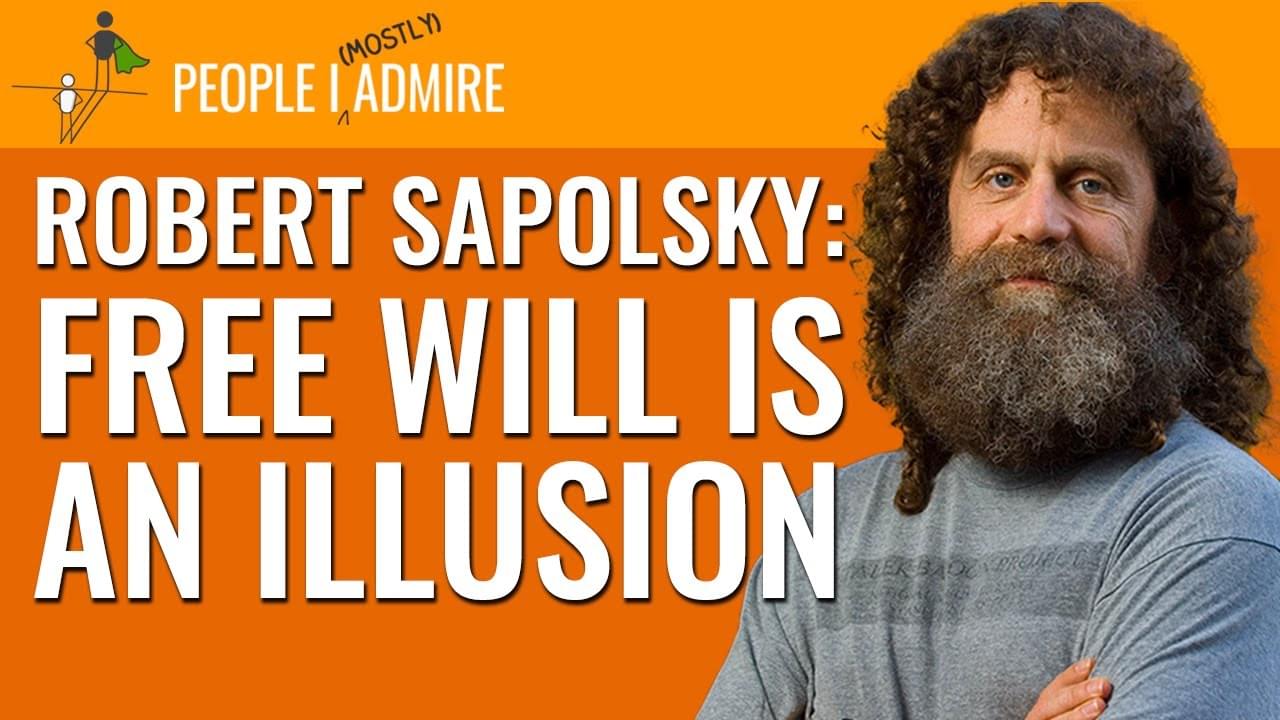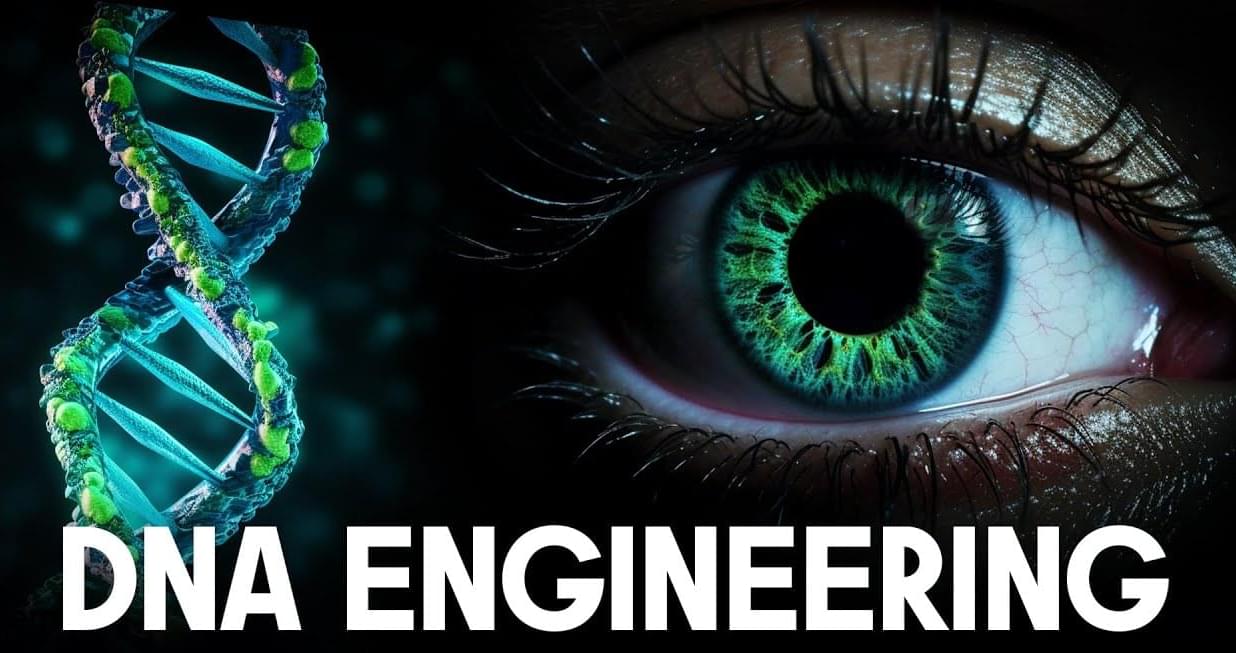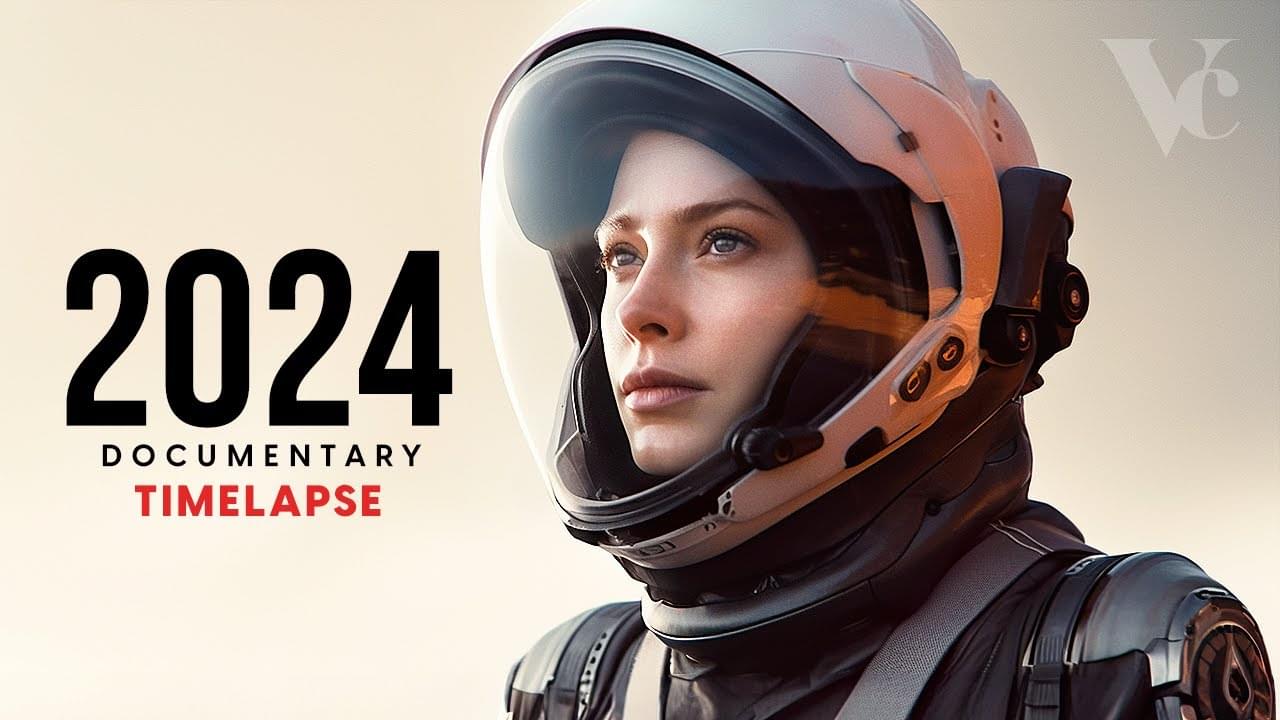Dec 26, 2023
Cellular Automata: Complexity From Simplicity
Posted by Dan Breeden in category: education
This educational video about cellular automata was filmed, narrated, and edited by Rudy Rucker in 1990, using some \.

This educational video about cellular automata was filmed, narrated, and edited by Rudy Rucker in 1990, using some \.
Whether the company’s actually getting closer to achieving this goal remains highly debatable. The company has also historically been highly secretive when it comes to its research, making it even more difficult to read the tea leaves over recent weeks.
But an interesting new twist to the story suggests OpenAI may have been on the verge of a major leap forward, and that it may indeed have been related to the shakeup.
Last week, Reuters and The Information reported that some OpenAI leaders may have gotten spooked by a powerful new AI the company was working on called Q*, pronounced “Q star.” This new system was apparently seen by some as a significant step towards the company’s goal of establishing AGI, and is reportedly capable of solving grade school math problems.

Robert Sapolsky is one of the world’s leading neuroscientists, with a focus on the physiological effects of stress. (For years, he spent his summers in Kenya, alone except for the baboons he was observing.) Steve asks Robert why we value human life over animals, why he’s lost faith in the criminal justice system, and how to look casual when you’re about to blow-dart a very large and potentially unhappy primate.\
\
This episode was originally published March 5, 2021.\
For a full transcript, resources, and more, visit: https://freak.ws/3WQAjmF\
\
ABOUT PEOPLE I (MOSTLY) ADMIRE:\
People I (Mostly) Admire is hosted by Steven Levitt, the unorthodox University of Chicago economist and co-author of the Freakonomics book series, who tracks down other high achievers and asks questions that only he would think to ask. Guests include all-time Jeopardy! champion (and now host) Ken Jennings, YouTube C.E.O. Susan Wojcicki, W.N.B.A. champion Sue Bird, Operation Warp Speed chief Moncef Slaoui, and neuroscientist/actress (also now Jeopardy! host) Mayim Bialik. Winner of Adweek‘s 2021 Best Interview Podcast of the Year.\
\
SUBSCRIBE TO PEOPLE I (MOSTLY) ADMIRE:\
YouTube: https://freak.ws/3yIl6dl\
Stitcher: https://freak.ws/3ENOP8v\
Apple Podcasts: https://freak.ws/3ELfGST\
Spotify: https://freak.ws/3D6uqKV\
\
ABOUT FREAKONOMICS RADIO NETWORK:\
Freakonomics began as a book, which led to a blog, a documentary film, more books, a pair of pants, and in 2010, a podcast called Freakonomics Radio. Hosted by Stephen J. Dubner, it’s one of the most popular podcasts in the world, with a reputation for storytelling that is both rigorous and entertaining. Its archive of more than 500 episodes is available, for free, on any podcast app, and the show airs weekly on NPR stations. Freakonomics Radio is now the flagship show of the Freakonomics Radio Network, which includes the podcasts No Stupid Questions (est. 2020), People I (Mostly) Admire (2020), and Freakonomics, M.D. (2021). \
\
FREAKONOMICS RADIO NETWORK PODCASTS:\
Freakonomics Radio: https://freakonomics.com/series/freak…\
No Stupid Questions: https://freakonomics.com/series/nsq/\
People I (Mostly) Admire: https://freakonomics.com/series/peopl…\
Freakonomics, M.D.: https://freakonomics.com/series/bapu/\
Special series: https://freakonomics.com/topics/\
\
00:00 Robert Sapolsky bio\
01:37 Baboon research in Kenya\
3:03 Baboon social rank and health\
4:14 Blow-dart sedation challenges\
7:40 Why human and animal stress are similar\
11:09 Why Sapolsky only studied male baboons\
12:42 Affiliation vs. rank in baboons\
14:08 Tragic end of research with first baboon troop\
17:38 Why humans prioritize human lives\
19:25 How humans prioritize pets\
19:47 Prioritization of tigers in India\
21:00 Harambe the gorilla\
22:19 Chronic stress research\
25:08 Ways to respond to stress\
26:00 Genetic influence on stress\
26:45 ACE score to quantify stress\
28:49 Addressing PTSD to reduce crime\
29:35 Behave-Sapolsky book on violence\
29:56 Free will and violence\
30:35 Abolishment of criminal justice system\
30:54 The frontal cortex and impulse control\
31:31 Frontal cortex trauma in death row inmates\
32:29 Purposes of punishment\
32:46 Retribution\
32:59 Incapacitation and deterrence\
33:35 Quarantine model of punishment\
34:10 “Biological luck” in blame and reward\
34:51 Epilepsy, schizophrenia, and dyslexia misunderstood\
37:06 How to be a better storyteller.

The Genetic Revolution is a compelling science documentary that invites viewers into the groundbreaking world of DNA manipulation and genetic engineering. This intriguing documentary showcases the innovative science behind genetic modifications and chronicles a diverse team of scientists from around the world as they utilize advanced DNA editing technologies like CRISPR in ways previously deemed unthinkable.\
With its exploration into the rapidly evolving science of DNA editing, \.
Researchers have created an artificial intelligence tool that uses sequences of life events—such as health history, education, job and income—to predict everything from a person’s personality…

This timelapse of future technology begins with 2 Starships, launched to resupply the International Space Station. But how far into the future do you want to go?
Tesla Bots will be sent to work on the Moon, and A.I. chat bots will guide people into dreams that they can control (lucid dreams). And what happens when humanity forms a deeper understanding of dark energy, worm holes, and black holes. What type of new technologies could this advanced knowledge develop? Could SpaceX launch 100 Artificial Intelligence Starships, spread across our Solar System and beyond into Interstellar space, working together to form a cosmic internet, creating the Encyclopedia of the Galaxy. Could Einstein’s equations lead to technologies in teleportation, and laboratory grown black holes.
Continue reading “Timelapse of Future Technology Vol. II (Sci-Fi Documentary)” »
Abstract Here we represent human lives in a way that shares structural similarity to language, and we exploit this similarity to adapt natural language processing techniques to examine the evolution and predictability of human lives based on detailed event sequences.
Using registry data from Denmark, Lehmann et al. create individual-level trajectories of events related to health, education, occupation, income and address, and also apply transformer models to build rich embeddings of life-events and to predict outcomes ranging from time of death to personality.

RoboCob can simulate jumps up to 1.20 meters, elevating equestrian training with instant feedback through integrated screens.
Scotland’s Rural College (SRUC) has debuted a state-of-the-art robotic horse in a leap forward for equestrian education. This cutting-edge creation is set to advance the way equestrian students undergo training, offering a meticulously crafted and technologically advanced solution.
Continue reading “Meet RoboCob, Scotland’s first robot stallion to train horse riders” »
Virtual reality, or VR, is not just for fun-filled video games and other visual entertainment. This technology, involving a computer-generated environment with objects that seem real, has found many scientific and educational applications as well.
Sean Preins, a doctoral student in the Department of Physics and Astronomy at the University of California, Riverside, has created a VR application called VIRTUE, for “Virtual Interactive Reality Toolkit for Understanding the EIC,” that is a game changer in how particle and nuclear physics data can be seen.
Made publicly available on Christmas Day, VIRTUE can be used to visualize experiments and simulated data from the upcoming Electron-Ion Collider, or EIC, a planned major new nuclear physics research facility at Brookhaven National Lab in Upton, New York. EIC will explore mysteries of the “strong force” that binds the atomic nucleus together. Electrons and ions, sped up to almost the speed of light, will collide with one another in the EIC.
